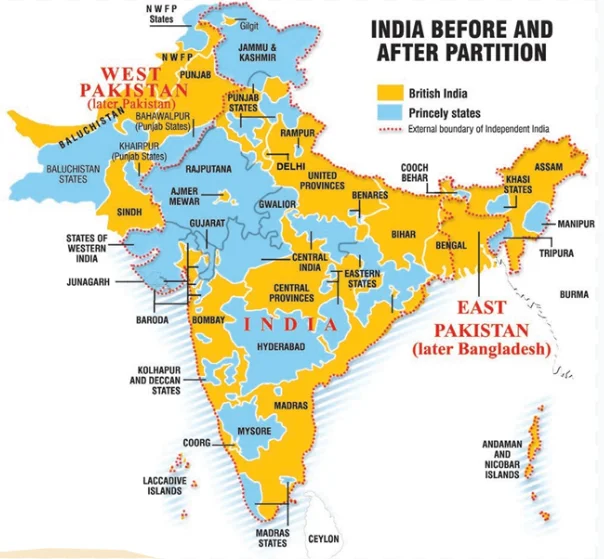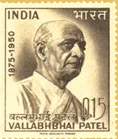![]() 26 Jul 2024
26 Jul 2024
In 1947, India comprised British Indian Provinces and the Princely States. The British Indian Provinces were directly under the British Crown, whereas the Princely States enjoyed some form of control over their internal affairs as long as they accepted British Paramountcy or Suzerainty. In 1947, the Princely States covered 40% of the area of pre-independence India and constituted 23% of its population.
End of British Paramountcy: With the end of British rule, the paramountcy of the British crown over the nearly 565 Princely States would also lapse and they would become legally independent.

Sardar Patel, India’s Deputy Prime Minister, and Home Minister in 1947, played a historic role in India’s integration, by negotiating with the rulers of princely states firmly but diplomatically and bringing most of them into the Indian Union.

| Sardar Vallabhbhai Patel (1875-1950): Leader of the freedom movement; Congress leader; follower of Mahatma Gandhi; Deputy Prime Minister and first Home Minister of independent India; played an important role in the integration of Princely States with India; member of important committees of the Constituent Assembly on Fundamental Rights, Minorities, Provincial Constitution, etc. |
Accession of the Princely States of Junagadh, Kashmir, Hyderabad, and Manipur proved more difficult than the rest.
Tribal Invasion: In October 1947, tribal forces from Pakistan invaded Kashmir, which led to panic.
Initial Autonomy: Maharaja Bodhachandra Singh signed the Instrument of Accession with India, retaining and maintaining internal autonomy.
Travancore: Initially refused accession but joined India on July 30, 1947, after an assassination attempt on its Dewan, Sir C.P. Ramaswamy Aiyar.
| Must Read | |
| Current Affairs | Editorial Analysis |
| Upsc Notes | Upsc Blogs |
| NCERT Notes | Free Main Answer Writing |
India owes Sardar Vallabhbhai Patel for uniting 565 princely states into the Union, averting national fragmentation. Despite their historical aloofness, Patel’s diplomacy ensured their integration. Post-independence, many princes adapted, entering politics, diplomacy, and public service. The abolition of Privy Purses in the 1970s marked the end of their formal status, yet their legacy endures in various public roles.
| Related Articles | |
| Relations of British India with Neighboring Countries | GOVERNMENT OF INDIA ACT, 1947 |
| Integration of Princely States | Functions and Legacy of the Indian Constituent Assembly |
<div class="new-fform">
</div>